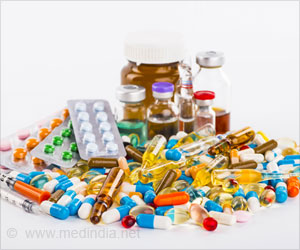Highlights
- Bacteria have gradually become resistant to most of the antibiotics that are commonly being used for treatment.
- Few of the bacteria have also become resistant to the last resort antibiotic called colistin.
- Mass spectrometer in testing labs of the hospitals may help to diagnose the dangerous-drug resistant bacterial infections.
It is an important discovery that knowing which patients have this dangerous infections may halt the spread and stop the rise of drug resistance.
The research team was presented by Dr Laurent Dortet, Associate Professor at South Paris University, France, and at Imperial College London, UK. The research work has been a collaboration between Dr Dortet and colleagues at Imperial, Dr Gerald Larrouy-Maumus and Professor Alain Filloux.
They studied groups of bacteria that belong to a member called Enterobacteriaceae which causes gastroenteritis, lung infections, sepsis and urinary tract infections. The bacteria may be called Escherichia coli and Klebsiella pneumoniae.
These bacteria may have become resistant to all the available antibiotics that were mostly produced by antibiotic inactivating enzymes, examples such as extended-spectrum lactamases and carbapenemases. And colistin was found to be the only treatment option for these multidrug resistant bacteria.
Two different types of colistin resistance may exist in bacteria
- The first type includes chromosome-encoded resistance which can be passed on when the bacteria grows and divides to form new bacterial cells.
- The second type called the plasmid-encoded resistance is dangerous as it can be passed on from one type of bacteria to a completely different type of bacteria.
The researchers tested 134 different colonies of bacteria using mass spectrometer. Different molecules can be tested at most hospitals using mass spectrometer present at most of the hospitals.
The test was found to distinguish not only the bacteria that is colistin resistant and that is not. The test could be carried out in around 15 minutes and would cost less than one US dollar per sample.
Dr. Larry-Maumus explained that, the exciting thing about the technique is that it relies on the technology which will be already available in most hospitals. This could be rolled out quickly and cheaply and potentially may have a rapid impact on tackling the drug-resistance.
The research team concluded that the test could be useful for screening the veterinary samples where the colistin-resistance levels are found to be high. This might be used for testing whether the drugs are able to restore the vulnerability of the bacteria to colistin.
Mass Spectrometry
It is an analytical instrument that is used for identifying the chemical substances present in the samples.
In hospitals, it is clinically used to better understand the biochemical basis of the disease; this may help to improve the diagnostic approach of the early-stage disease detection and also to find out the mechanisms for improving treatments.
References
- Clinical Mass Spectrometry Laboratory - (https://www.cincinnatichildrens.org/research/divisions/p/pathology/spectrometry-lab)
Source-Medindia















